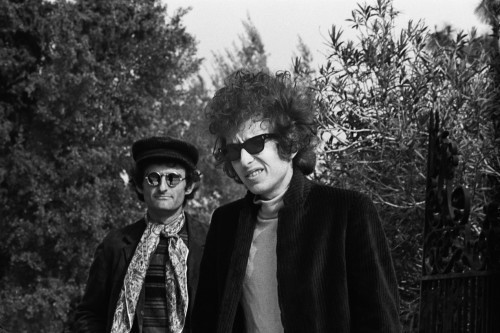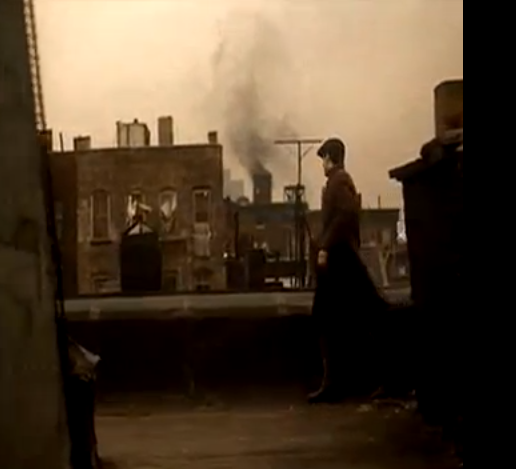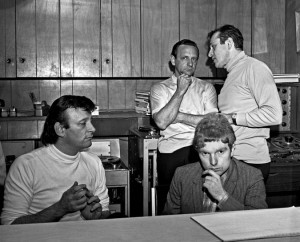Tim Riley's Blog, page 6
October 20, 2014
Reasons to be Cheerful: Sleater-Kinney Reunion


Chris Smither


October 11, 2014
Eight-String Bach
Interview with Reinventing Bach author Paul Elie about Chris Thile’s performing Bach on mandolin. Part of a larger project still in progress, Roll Over, Beethoven: the Rock Critic’s Guide to Classical Music
September 24, 2014
Banned Books Week – Author Picks
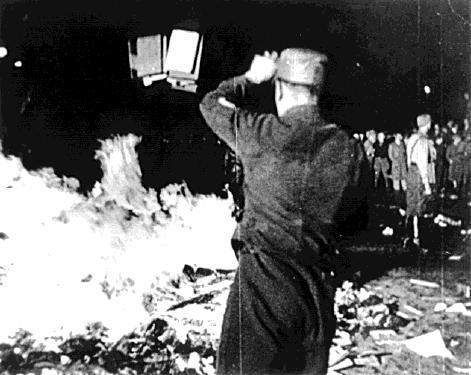
English: 1933 May 10 Berlin book burning — taken from the U.S. National Archives Česky: Pálení knih v Berlíně, z 10. května 1933 (Photo credit: Wikipedia)
Burning Ideas: Celebrating Banned Books Week at Truthdig.
Banned Books That Shaped America
September 17, 2014
Dylan’s Other Side: Maymudes Backstage
An Insider’s View of the Bob Dylan Story
Another Side of Bob Dylan, by Victor and Jacob Maymudes
On Point discussion with Jacob Maymudes and Tom Ashbrook
NPR rebroadcasts this, repeats tonight on WBUR at 8pm Eastern.
Related articles
 A Dylan Insider’s Back Pages
A Dylan Insider’s Back Pages 6 Things We Learned From the New Bob Dylan Tell-All
6 Things We Learned From the New Bob Dylan Tell-All Bob Dylan Memoir Completed After Fire
Bob Dylan Memoir Completed After Fire
August 21, 2014
Nixon in Purgatory, plus: Obama’s Words to Live By: Harry Shearer
MORE:
Nixon at 38:48
“We Tortured Some Folks” at 37:56
Related articles
 Harry Shearer becomes final ‘Simpsons’ main cast member to win Emmy
Harry Shearer becomes final ‘Simpsons’ main cast member to win Emmy Harry Shearer Recreates Nixon’s Resignation Speech for 40th Anniversary
Harry Shearer Recreates Nixon’s Resignation Speech for 40th Anniversary Saturday Night Horror Show Open Thread: Our Long National Nightmare
Saturday Night Horror Show Open Thread: Our Long National Nightmare On the 40th Anniversary of Richard Nixon’s Resignation, See Harry Shearer Re-Enact the Historic Moment
On the 40th Anniversary of Richard Nixon’s Resignation, See Harry Shearer Re-Enact the Historic Moment
August 20, 2014
Buried in the Files: That Eric Alper entry
 Moondog Matinee, The Band (Capitol)
Moondog Matinee, The Band (Capitol)
I first fell in love with this record growing up in Boulder, Colorado, after I saw Dylan play with the Band at the Denver Coliseum in early 1974. I had Planet Waves in my ear, and knew the early Band albums, but this record hovered over them all with an aura of thankless bar gigs and spilt beer, where passion for music transcended terrible working conditions. Mainstream culture had just discovered the fifties catalog with American Graffiti, but the grandeur in these songs reframed George Lucas’s small-town fable. Although the Band’s lead singers (Levon Helm, Rick Danko, and Richard Maneul) took on singers as lofty as Bobby Blue Bland (“Share Your Love [With Me]“), Sam Cooke (“A Change Is Gonna Come”) and Allen Toussaint (“Holy Cow”), there was no pretense at competition. Helm, Danko and Manuel had too much humility, and no small courage, to compare themselves to their exemplars. In the best possible way, these models were too out of reach. Those earlier singers were so incomparable, imitation would have yielded mere flattery. The point was: Sam Cooke & Co. had set the Band’s singers free, and they pursued these songs like personal narratives, stories they had long since internalized as true musical north. These tracks also gave you a map to the Band’s subconscious, making weaker efforts worthwhile in ways they wouldn’t have otherwise been: if they could fail with this set list as looming subtext, who could possibly write them off? Why would anybody want to? Worth tracking down the exquisitely quiet Japanese limited edition remaster from 1998, and tricked out as a Spotify list with other covers, such as “Back to Memphis” (more Chuck Berry) or the Rock of Ages “(I Don’t Want To) Hang Up My Rock’n’Roll Shoes” (Chuck Willis), newly remastered on Live at the Academy of Music 1971. Way more fun than a box of chocolates, and sadder than any carnival.
via The Music Industry’s Most-Loved Albums Of All Time | That Eric Alper.
August 6, 2014
Battle of the Mashups: Donna Reed v Robert DeNiro
August 4, 2014
Fever: How Rock Transforms Gender
Now a feature-length ebook available from fine digital outlets everywhere…
Read a sample chapter here: Chapter Six – Bruce Springsteen’s “Walk Like a Man”
Customized Spotify playlist
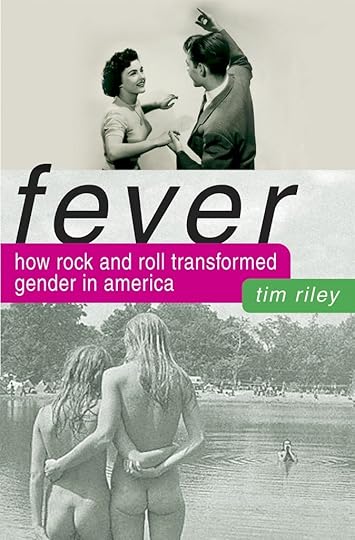
St. Martin’s 2002 hardcover by Tim Riley
August 3, 2014
Bert Berns: Accidentally, Like a Martyr
Dear New York Times,
As Larry Rohter’s lively and illuminating article (“Many-hit Wonder, Out of Obscurity: Bert Berns, Songwriter and Producer, Remembered,” July 20) demonstrates, obscurities like Berns deserve a bigger place in rock history. But too many people forget that while his ” trademark was the dark, angst-ridden tale of love unrequited or gone wrong,” he scored his biggest hit with an accident. “Twist and Shout” was originally written in 1961 as a crude answer song to Chubby Checkers’s “The Twist” (1960) and performed by a long-forgotten white Atlantic act from Phillie called the Top Notes. One year later, after repeated strikeouts in the wake of their 1959 hit “Shout!” the Isley Brothers reached for the Berns song to get back on the scoreboard. It seems unlikely that the Beatles ever heard the original Top Notes version, but it makes an intriguing footnote. As gifted as Berns proved, one of his biggest hits came about randomly—reversing of the usual pattern—when a black act revived a failed white novelty number.
The original on youtube: http://bit.ly/bertberns
Related articles
 Bert Berns: the man behind 51 pop hits
Bert Berns: the man behind 51 pop hits Piece of My Heart
Piece of My Heart Bert Berns, The Rock Phenom You Never Heard Of, Finally Gets His Due
Bert Berns, The Rock Phenom You Never Heard Of, Finally Gets His Due Piece of My Heart: The Bert Berns Story
Piece of My Heart: The Bert Berns Story

